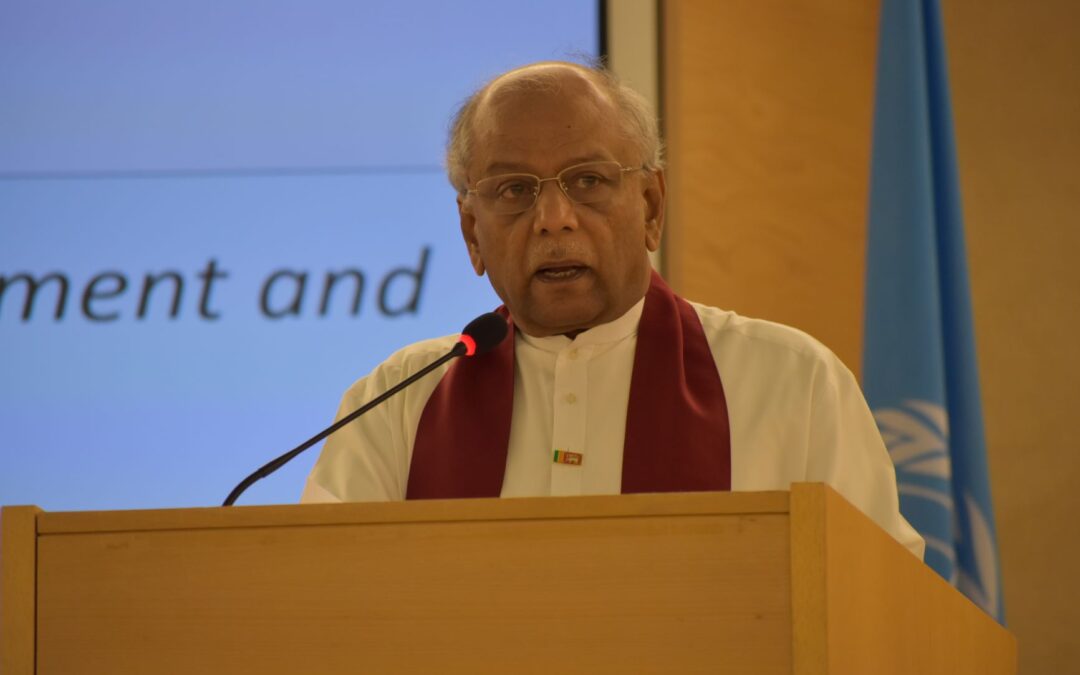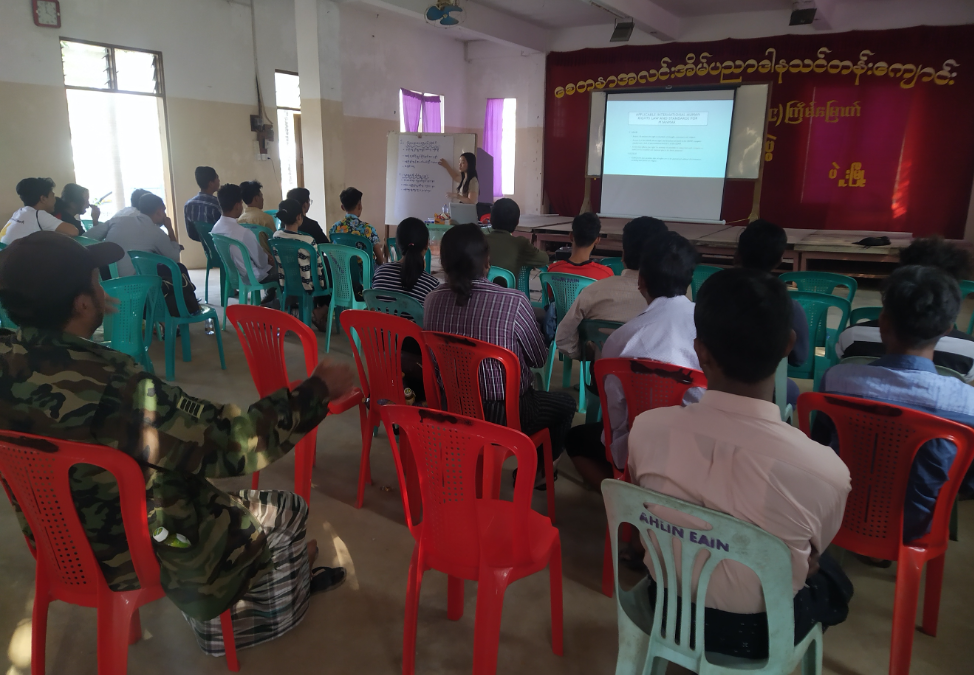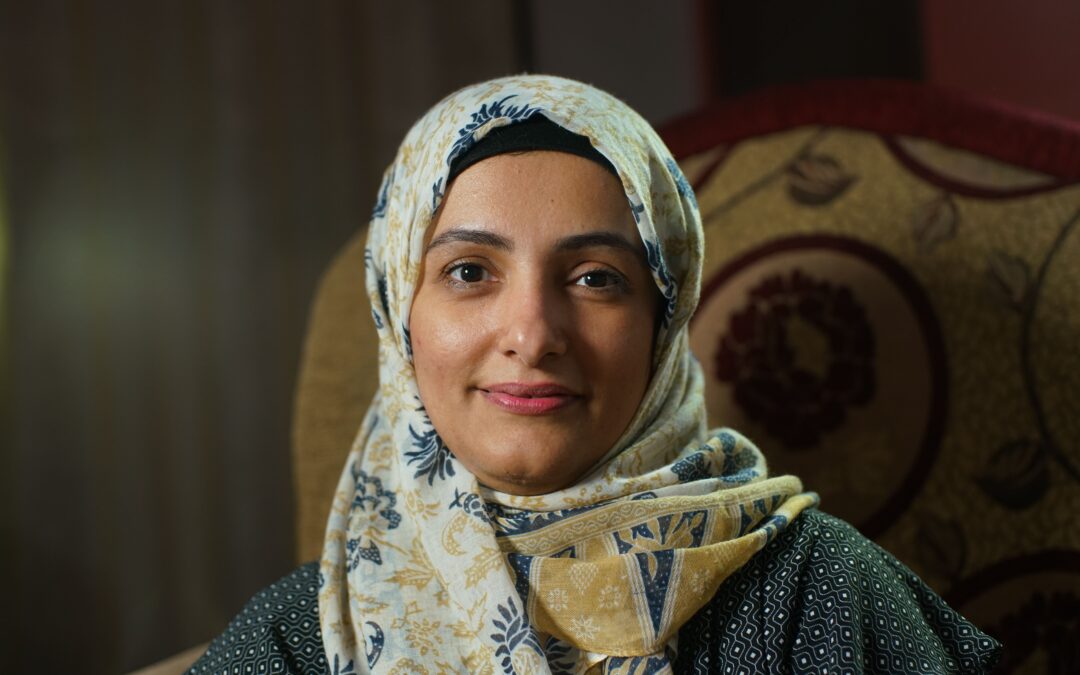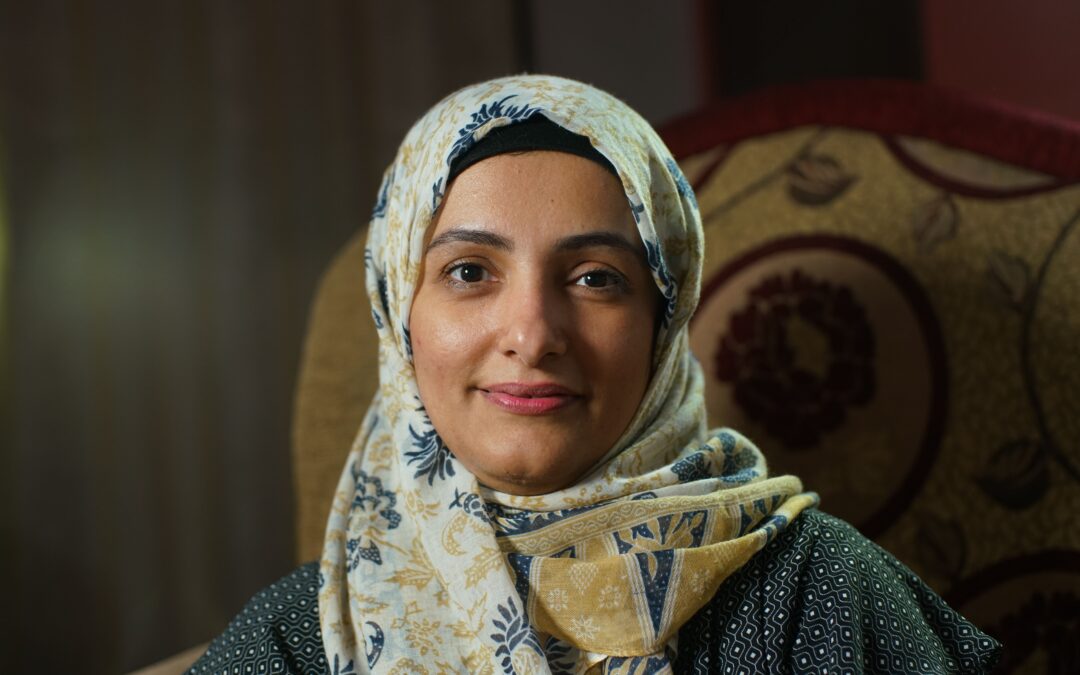
Feb 27, 2020 | News
The ICJ today condemned the Sri Lankan Government’s announced “withdrawal” of support for the process under UN Human Rights Council (UNHRC) Resolutions 30/1, 34/1 and 40/1.
Minister of Foreign Affairs, Dinesh Gunawardane, formally announced the decision on 26 February at a High-Level Segment of the 43rd session of the UNHRC in Geneva.
“The Government of Sri Lanka’s refusal to implement effective measures for truth, justice, accountability and reconciliation, including as set out in the resolutions of the Human Rights Council, places it in violation of its obligations under international law,” said Frederick Rawski, ICJ’s Regional Director for Asia and the Pacific. “Holding perpetrators of human rights violations accountable at the international level now appears to be the only real option – including referral to the International Criminal Court, the creation of an ad hoc international mechanism, and the exercise of universal jurisdiction.”
Gunawardane stated that the Government of Sri Lanka would instead “achieve sustainable peace through an inclusive, domestically designed and executed reconciliation and accountability process, including through the appropriate adaptation of existing mechanisms, in line with the Government’s policy framework.”
“It is the Sri Lankan Government’s failure to initiate a credible and comprehensive approach to transitional justice in the aftermath of the war that led to the intervention of the international community in the first place,” said Rawski. “Sri Lanka’s domestic legal system has repeatedly demonstrated that it is unable to address systemic and entrenched impunity for crimes under international law perpetrated by the military and security forces,” he added.
Pronouncements by the President, on protecting military personnel from any accountability measures coupled with appointments to senior command positions individuals credibly accused of serious human rights violations indicate that the long history of impunity of security forces in Sri Lanka is set to continue.
The ICJ is deeply concerned that the Government’s official refusal to implement the UN resolutions comes at a time when the human rights situation in Sri Lanka is rapidly deteriorating. It threatens to undermine even the meagre progress made over the past few years, which albeit slow and wholly insufficient, has been primarily due to the continued engagement of the Council, OHCHR and international community. The UNHRC process is also the only forum at the global level where Sri Lankan civil society and victim groups have had the opportunity to engage openly in dialogue with the Government and other States on human rights concerns in Sri Lanka.
The validity of adopted resolutions of the Council does not depend on their acceptance by the government concerned. Reporting and discussion of Sri Lanka’s implementation or failure to implement them will take place this year and in 2021 at the Council regardless of the Government’s position.
Contact
Frederick Rawski, ICJ’s Asia Pacific Regional Director, t: +66 2 619 84 77; e: frederick.rawski(a)icj.org

Feb 27, 2020 | Advocacy, News
In January and February 2020, the ICJ supported community dialogue events on international and national law and standards relating to freedom of thought, conscience, religion and belief.
The events were organized by the Young Men’s Christian Association (YMCA) for around 50 youths and human rights defenders from Chin State and Bago Region in Myanmar.
The program sought to improve the capacity of local youths and human rights defenders from Chin State and Bago Region to understand how freedom of religion or belief (FoRB) is protected by the international and national legal frameworks and apply this understanding to their activities.
The ICJ’s national legal researcher, Ja Seng Ing, introduced the concept of freedom of religion or belief (FoRB) u, and applicable international standards on FoRB for Myanmar including how FoRB interacts with other human rights such as freedom of expression. She presented an overview of the domestic legal framework on FoRB and highlighted the State’s obligation to implement such laws and policies to respect and protect the equality, non-discrimination and other rights of individuals and to particularly address violations of their rights to FoRB.
The participants raised the need to improve the quality of public discussion on FoRB and related human rights, and shared this experiences in advocating for the protection of FoRB – including the limitation and challenges that they have faced.
The activities are part of the ICJ’s ongoing effort to convene civil society actors and lawyers in Myanmar with a view to advancing FoRB in the country, and builds on the ICJ’s previous work on this theme.
Contact
Ja Seng Ing, ICJ Legal Researcher, e: jaseng.ing(a)icj.org
Related material
Primer on international human rights law and standards on the right to freedom of thought, conscience, religion or belief, January 2019
New report examines right to freedom of religion or belief in Malaysia, March 2019

Feb 25, 2020 | Advocacy, Non-legal submissions
The ICJ today spoke at the UN Human Rights Council in Geneva, highlighting issues of access to justice for women in the context of religious and customary law.
The statement, delivered during a High Level Panel discussion commemorating the twenty-fifth anniversary of the Beijing Declaration and Platform for Action adopted at the Fourth World Conference on Women, read as follows:
“The International Commission of Jurists (ICJ) welcomes this opportunity to celebrate the progress made in the implementation of the Beijing Declaration and Platform for Action 25 years after its adoption and to address the remaining challenges to gender equality and women’s empowerment.
We have indeed seen an expansion in many countries of women’s legal entitlements and protection of their rights. However, there is also a growing trend to push these advances back and violate women’s human rights, invoking as justification religion, tradition, culture, and custom. This came out clearly when ICJ, UN Women and the OHCHR hosted a consultation for the UN Special Rapporteur on freedom of religion or belief last year, where women human rights defenders from all over Asia raised concerns about the resurgence of intersecting forms of discrimination by religion and culture based on patriarchal attitudes. They specifically narrated how women and girls were denied their sexual and reproductive rights.
Recalling the vision of the Beijing Declaration and Platform for Action, we reiterate the obligation of States not to invoke, “any custom, tradition or religious consideration”, to avoid their obligations to combat gender-based violence and discrimination against women. The Human Rights Committee also provides that “State parties should ensure that traditional, historical, religious or cultural attitudes are not used to justify violations of women’s right to equality before the law and to equal enjoyment of [ICCPR] rights[1].”
We therefore urge the Council to foster an open and inclusive discourse with Member States on the regressive interpretations of religious and customary laws that discriminate against women, and to acknowledge the voices and the diversity of women in that process. We urge States to ensure the full implementation of the human rights of women as an inalienable part of all fundamental freedoms.”
[1] Para 5, CCPR/C/21/Rev.1/Add.10

Feb 19, 2020 | Comunicados de prensa, Noticias
Junto con Sizani Ngubane, de Sudáfrica, y Norma Librada Ledezma, de México, Huda era una las tres defensoras de los derechos humanos seleccionadas como finalistas para el Premio por un jurado formado por diez de las principales organizaciones de derechos humanos del mundo, incluyendo la CIJ.
La ceremonia de entrega del Premio Martin Ennals 2020, copatrocinada por la Fundación Martin Ennals y la Ciudad de Ginebra, se celebró hoy, y por primera vez en la historia del galardón, los tres finalistas son mujeres.
“Las defensoras de los derechos humanos corren los mismos riesgos que cualquier defensor de los derechos humanos, pero al ser mujeres, debido a su género están expuestas también a determinadas formas de violencia y violaciones de derechos humanos. Los defensores y defensoras de los derechos humanos son sometidos a menudo a estigmatización y exclusión por líderes comunitarios, grupos religiosos, e incluso miembros de su familia”, afirma la alcaldesa de la Ciudad de Ginebra, Sandrine Salerno.
“La Fundación Martin Ennals se siente especialmente orgullosa de honrar y apoyar este año por sus logros a tres resilientes defensoras de los derechos humanos: nuestra galardonada, Huda Al- Sarari, y nuestras dos finalistas, Sizani Ngubane y Norma Librada Ledezma. Esperamos que el premio sirva para dar a conocer sus logros y crear sólidos mecanismos de protección en torno a ellas”, explica Philippe Currat, presidente de la Junta Directiva de la Fundación Martin Ennals.
“Ser defensor de los derechos humanos en Yemen es una tarea sumamente difícil, y ser mujerhace que resulte aún más ardua. En una sociedad dominada por hombres, he tenido que demostrar mi valía quizá 10 veces más que un hombre”, explica Huda.
A pesar de las amenazas, campañas de difamación y sacrificios que ella y su familia han soportado, Huda continúa estando al lado de las familias de quienes han desaparecido.
“Recibir el Premio Martin Ennals para Defensores y Defensoras de los Derechos Humanos significa muchísimo para mí. Me da una gran fuerza y valor para continuar esta lucha por la justicia”, afirma. “Creo que el Premio será de enorme importancia para llamar la atención sobre el sufrimiento constante de las víctimas de detención arbitraria, abusos y tortura en Yemen”, asegura.
Hans Thoolen, presidente del Jurado del Premio Martin Ennals, señala: “Felicitamos a Huda por la labor que ha realizado, no sólo en el contexto de la guerra civil que sufre Yemen, sino también en un país donde las mujeres luchan todavía por expresar sus derechos políticos y civiles. El legado de Huda es esencial, pues sus exhaustivas investigaciones y su búsqueda de rendición de cuentas servirán para que se haga justicia por las violaciones de derechos humanos cometidas durante el conflicto.”
Las dos finalistas del Premio Martin Ennals de este año son Sizani Ngubane (de Sudáfrica) y Norma Librada Ledezma (de México).
Sizani es una defensora de los derechos humanos que promueve el derecho de las mujeres sobre la tierra en las zonas rurales de Sudáfrica. También presta apoyo a las mujeres para que tengan acceso a la educación, y lucha por el fin de la práctica tradicional conocida como ukuthwala, consistente en el secuestro y matrimonio forzado de niñas y mujeres.
Norma es la fundadora de la organización Justicia para Nuestras Hijas. Ha ayudado a realizar más de 200 investigaciones sobre casos de feminicidio, desaparición forzada y trata de personas ocurridos en Chihuahua (México).
Las organizaciones miembro del Jurado del Premio Martin Ennals han alabado el compromiso y los enormes logros de ambas en sus respectivos países.
La Ciudad de Ginebra patrocina la ceremonia de entrega del Premio, junto con la Fundación Martin Ennals, desde 2008 como parte de su hondo compromiso con la defensa de los derechos humanos. El apoyo que presta la ciudad, por medio de su Servicio de Solidaridad Internacional, refleja su misión de promover los derechos humanos en el ámbito internacional y
El Jurado del Premio Martin Ennals está integrado por diez de las principales organizaciones de derechos humanos del mundo: la CIJ, Amnistía Internacional, la Federación Internacional de los Derechos Humanos, Human Rights First, el Sistema Internacional de Información y Documentación sobre Derechos Humanos (HURIDOCS) , el Servicio Internacional para los Derechos Humanos, Brot für die Welt (Pan para el Mundo), Front Line Defenders, Human Rights Watch y la Organización Mundial contra la Tortura.
Contacto
Olivier van Bogaert, Director de comunicación de la CIJ, miembro del jurado, t: +41 22 979 38 08 ; e: olivier.vanbogaert(a)icj.org
Universal-MEA2020bios-News-2019-SPA (biografías completas de las finalistas, en PDF)
Para ver la ceremonia
https://www.facebook.com/MartinEnnals/videos/2552501445008021/

Feb 19, 2020 | Communiqués de presse, Nouvelles
Le Prix Martin Ennals 2020 a été décerné à Huda Al-Sarari, avocate yéménite et militante des droits humains. Elle était une des trois femmes sélectionnées par le jury, dont fait partie l’ICJ, aux côtés de Sizani Ngubane, Afrique du Sud, et Norma Librada Ledezma, Mexique.
Co-organisée par la Fondation Martin Ennals et la Ville de Genève, la cérémonie de remise du Prix Martin Ennals 2020 s’est déroulée aujourd’hui, et, pour la première fois, dans l’histoire du Prix, les trois finalistes étaient des femmes.
« Les femmes défenseuses des droits humains sont confrontées aux mêmes risques que tout militant des droits humains, mais en tant que femmes, elles subissent aussi certaines formes de violence et de violations en raison de leur sexe. Elles sont souvent stigmatisées et ostracisées par des chefs communautaires, des groupes confessionnels, voire des membres de leur famille », a expliqué la Maire de Genève Sandrine Salerno.
« La Fondation Martin Ennals est très fière de rendre hommage et de soutenir cette année trois femmes résilientes qui œuvrent pour la défense des droits humains : notre lauréate Huda Al-Sarari ainsi que nos deux finalistes Sizani Ngubane et Norma Librada Ledezma. Nous espérons que le Prix contribuera à mettre en lumière leurs réalisations et à renforcer les mécanismes de protection autour d’elles », a souligné Philippe Currat, président du Conseil d’administration de la Fondation Martin Ennals.
« Il est extrêmement difficile d’être un défenseur des droits humains au Yémen, et cela est encore plus difficile pour une femme. Dans une société dominée par les hommes, je dois faire mes preuves peut-être dix fois plus qu’un homme », a dit Huda Al-Sarari.
Malgré les menaces, les campagnes de diffamation et les sacrifices qu’elle et sa famille ont subis, elle continue à se battre aux côtés des familles des disparus.
« Recevoir le Prix Martin Ennals 2020 pour les défenseurs des droits humains signifie tout pour moi. Cela me donne une grande force et m’encourage à poursuivre ce combat pour la justice. Je suis persuadée que le Prix jouera un rôle extrêmement important en permettant d’attirer l’attention sur le sort des victimes de détentions arbitraires, d’abus et de torture au Yémen », a-t-elle ajouté.
Hans Thoolen, président du jury du Prix Martin Ennals, a quant à lui déclaré: « Nous félicitons Huda pour le travail qu’elle a mené, non seulement dans le contexte de la guerre civile actuelle au Yémen, mais aussi dans un pays où les femmes luttent encore pour jouir de leurs droits civils et politiques. L’héritage de Huda est crucial, car ses enquêtes approfondies et sa recherche de responsabilité permettront de rendre justice aux victimes de violations des droits humains commises pendant le conflit. »
Cette année, les deux finalistes du Prix Martin Ennals 2020 sont Sizani Ngubane (Afrique du Sud) et Norma Librada Ledezma (Mexique).
Sizani est une militante des droits humains qui lutte pour l’accès des femmes à la propriété foncière dans les zones rurales sud-africaines. Elle aide également les femmes à accéder à l’éducation et se bat pour abolir la pratique traditionnelle d’ Ukuthwala, l’enlèvement et le mariage forcé de fillettes et de femmes.
Fondatrice de l’organisation Justicia para Nuestras Hijas, Norma a soutenu plus de 200 enquêtes sur des féminicides, des disparitions forcées et la traite d’êtres humains à Chihuahua, Mexique.
Toutes deux ont été félicitées par les organisations membres du jury Martin Ennals pour leur engagement et leurs formidables contributions dans leur pays respectif.
La Ville de Genève accueille la cérémonie de remise du Prix depuis 2008, en collaboration avec la Fondation Martin Ennals, dans le cadre de son fidèle engagement en faveur des droits humains. Le soutien de la Ville à travers la Délégation Genève Ville Solidaire reflète sa mission de promotion des droits humains à la fois au niveau local et dans le
Le jury du Prix Martin Ennals est composé de représentant-e-s de dix des plus importantes organisations de défense des droits humains : l’ICJ, Amnesty International, FIDH, Human Rights First, HURIDOCS, Service international pour les droits de l’homme, Brot für die Welt (Bread for the World), Front Line Defenders, Human Rights Watch, et l’Organisation mondiale contre la Torture.
Contact
Olivier van Bogaert, Directeur Médias & Communication, représentant de l’ICJ dans le jury du MEA, t: +41 22 979 38 08 ; e: olivier.vanbogaert(a)icj.org
Universal-MEA2020bios-News-2019-FRE (bios complètes des finalistes, PDF)
Pour voir la cérémonie
https://www.facebook.com/MartinEnnals/videos/2552501445008021/









